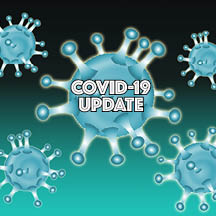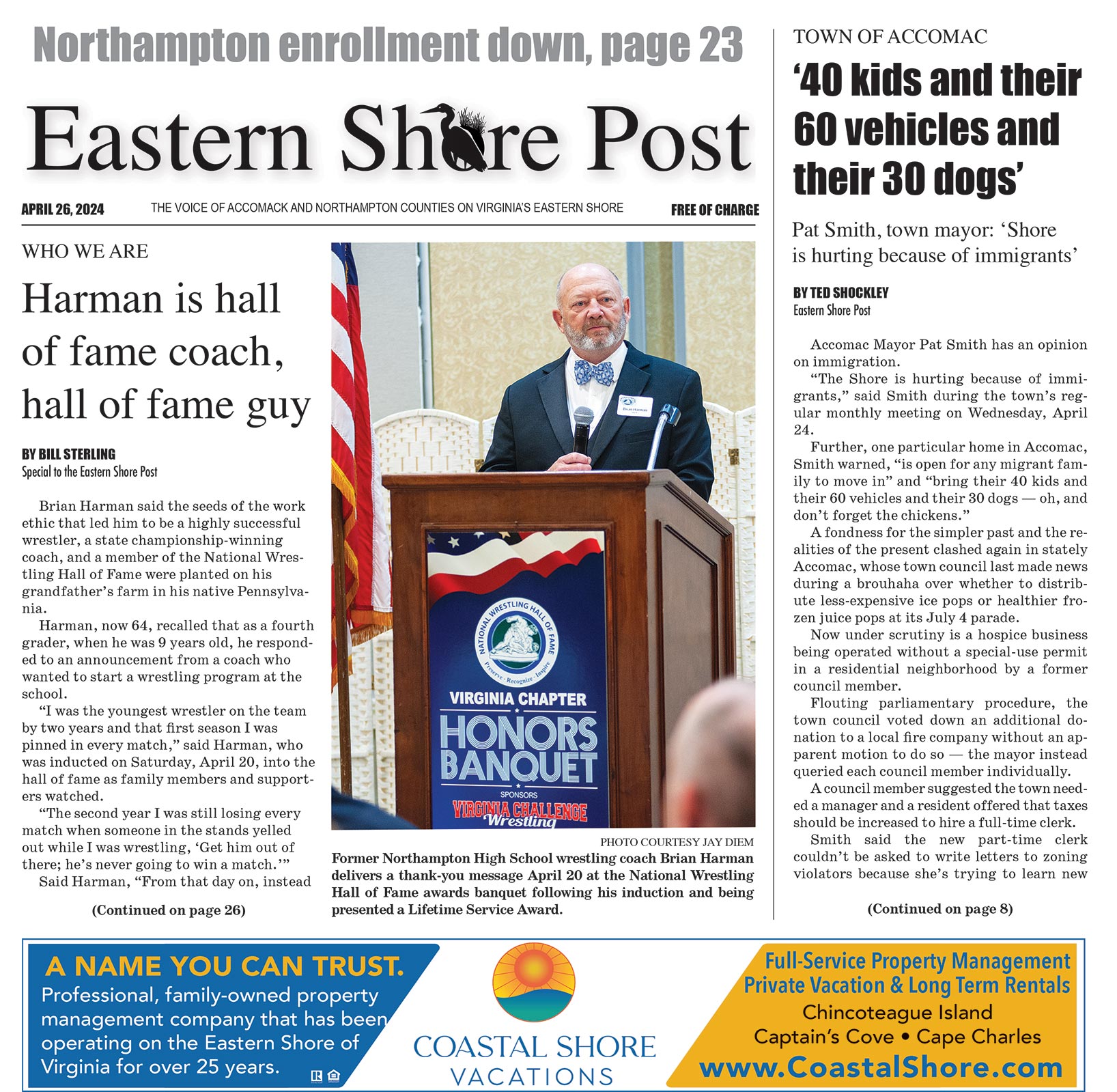By Carol Vaughn —
A Virginia Department of Health (VDH) official said Tuesday a surge in demand for COVID-19 tests is due to a combination of factors, including an increase in cases resulting from the omicron variant, along with people traveling and gathering during the holidays.
The seven-day test positivity rate as of Wednesday was 30.2% in Virginia and 21% on the Eastern Shore, according to the VDH.
Since Christmas Day, Accomack County has reported 353 COVID-19 cases, nine hospitalizations, and one death. Northampton County has reported 116 cases, three hospitalizations, and zero deaths.
Over the past year, unvaccinated people in Virginia developed COVID-19 at a rate 3.9 times that of fully vaccinated people.
In Northampton, 73.2% of the population is fully vaccinated and 30.9% has received a booster or third dose.
In Accomack, 62.5% of the population is fully vaccinated and 20.3% has received a booster or third dose.
Of the 5.7 million Virginians fully vaccinated, 1.5% have developed COVID-19, 0.045% have been hospitalized, and 0.01% have died.
“The VDH is aware that many people are having problems finding tests,” said Dr. Laurie Forlano, deputy director of the VDH office of epidemiology, during a press briefing.
Supply chain problems also are a factor.
“These issues are not unique to Virginia. VDH has experienced supply issues with rapid (and) point-of-care tests across multiple brands. We’ve placed orders that still have not been fulfilled,” she said, adding some orders were placed weeks or months ago.
Additionally, the healthcare system is being strained by staffing shortages, in part because of healthcare workers contracting the virus.
Forlano said the supply of rapid test kits might be strained for some time and asked people to only get what they need immediately, “rather than keeping a lot of extras on hand. That will help with the supply issue.”
Instead, she recommended making an appointment at a testing event or a pharmacy for tests needed for travel or other planned events.
She noted President Joe Biden announced the federal government is purchasing several hundred million rapid antigen tests and will be shipping them directly to the public, “in a somewhat yet-to-be-determined process.”
“As everyone knows, testing is an important strategy to reduce the spread of COVID-19 in combination with other prevention measures such as masking, vaccination, and distancing,” Forlano said.
People should get tested if they have symptoms or have come into close contact with someone with COVID-19, even if they have been vaccinated, according to Forlano. She said the recommendation to test vaccinated people who have come into contact with someone with COVID-19 is a new one from the VDH.
The best time to get tested after exposure is day 5, but testing on days 3 to 5 is an acceptable window.
“Even if you do not have symptoms and your COVID-19 test is negative after an exposure, we still recommend people monitor their symptoms for 10 days and follow any quarantine recommendations as is appropriate,” Forlano said.
Forlano directed Virginians to the VDH website for those recommendations, which may be viewed at https://www.vdh.virginia.gov/coronavirus/protect-yourself/local-exposure/ — including recommendations for vaccinated versus unvaccinated people.
Additionally, the Centers for Disease Control and Prevention has a Coronavirus Self-Checker on its website, at https://www.cdc.gov/coronavirus/2019-ncov/symptoms-testing/coronavirus-self-checker.html, which can help a person decide whether to seek testing or care.
A person who tested positive within the past three months and recovered, and who later was exposed to someone with COVID-19, does not need testing as long as he or she does not have symptoms, according to Forlano.
Forlano acknowledged asymptomatic people sometimes want to take a test before traveling or gathering with others. Still, she said, “During this time of very high community transmission, which is resulting in some strain on the healthcare system — taxing the system — we are also asking people to consider the criticality of that kind of testing, and whether other options might be possible.”
Those options include postponing non-essential travel or gatherings.
While rapid self-tests, which yield results in around 30 minutes, are in short supply, PCR tests, which are analyzed by a laboratory and take longer to yield results, are more readily available, according to Forlano.
The VDH has an adequate supply of PCR tests on hand and sufficient laboratory capacity to process them, she said.
“We would ask people to consider PCR testing if immediate test results are really not needed,” Forlano said.
The VDH encouraged Virginians not to go to emergency rooms for testing or mild illness.
“When you are ill, consider visiting urgent care or calling your healthcare provider if you are mildly ill for assessment and to talk through testing options,” she said.
VDH scheduled 51 community testing events across Virginia this week and also partners with 60 Walgreens pharmacies to offer free rapid antigen testing. Additionally, 45 libraries have opted into a VDH program to provide test kits.
The VDH has a testing site locator on its website, at https://www.vdh.virginia.gov/coronavirus/protect-yourself/covid-19-testing/covid-19-testing-sites/



